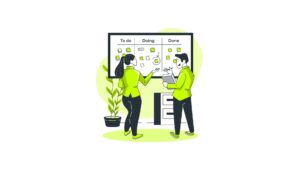Accept Cookies & Privacy Policy?
We use cookies to ensure that we give you the best experience on our website. If you continue to use this site we will assume that you accept and understand our Privacy Policy, and our Terms of Service.
Implementing an ERP system is like assembling a puzzle with a thousand tiny pieces. Get it right, and you’ve got a masterpiece that transforms your business. Get it wrong, and you’re left staring at a chaotic mess. At the heart of these catastrophic failures? A glaring absence of quality testing.
Let’s dive into the dark side of ERP implementation and the irreparable damage that can be caused by neglecting robust Quality Control (QC) and Quality Engineering (QE).
Picture this: your ERP system goes live, only for critical workflows to start glitching. Orders aren’t processing, inventory counts are off, and data mysteriously vanishes. Why? Because nobody stress-tested the system under real-world conditions.
Lesson: Catching bugs during testing is infinitely cheaper than dealing with a customer exodus later.
Without thorough testing, system configurations can clash like titans in a battle royale. Finance might demand one setup, while supply chain needs another. No one tests the alignment? Chaos ensues. Deliveries are delayed, financial forecasts go haywire, and your team spends weeks firefighting instead of focusing on growth.
Lesson: Testing ensures all modules play nice together before they’re unleashed on your unsuspecting workforce.
Migrating data into a new ERP system is like moving house—you need everything packed, labeled, and ready. Skip testing here, and you end up with mismatched records, duplicated entries, or missing customer details. The damage? Months of manual corrections or, worse, permanent data loss.
Lesson: Test every migration script, because your data is the backbone of your business.
ERP systems often need to comply with industry regulations, especially in healthcare, finance, or manufacturing. When testing is skimmed over, compliance gaps are inevitable. Imagine the horror of realizing post-implementation that your system doesn’t meet audit standards.
Lesson: QE testing validates compliance before the auditors come knocking.
Skipping testing might save time during implementation, but it’s a false economy. Post-go-live, unresolved bugs mean hiring expensive consultants for patches, delays in operations, and an overburdened IT team.
Lesson: Pay upfront for testing, or pay later with interest—and we’re talking heavy interest.
An untested system is often user-unfriendly. If your ERP slows workflows, forces constant workarounds, or causes confusion, your employees won’t hesitate to voice their frustrations. Employee morale plummets, productivity drops, and you’ve got a mutiny on your hands.
Lesson: Test for usability. Happy users mean a happy ERP system.
Imagine your ERP blunder leaks to the market—suppliers tweeting about unpaid invoices, customers complaining about missed deliveries, or regulatory fines making headlines. ERP failures don’t just affect operations; they tarnish your brand’s reputation, sometimes irreversibly.
Lesson: Testing is your silent partner in maintaining trust and credibility.
At Thought Frameworks, we’ve seen it all—projects rescued from the brink of failure, systems optimized for seamless integration, and data protected from disaster. Our QA and QE experts specialize in turning ERP nightmares into success stories. With our structured, real-world approach to testing, we help ensure your ERP doesn’t just work—it sustains.
Skipping testing isn’t a shortcut; it’s a ticking time bomb. When ERP failures occur, the damage is often permanent including lost trust, wasted money, and a tarnished reputation. So, before you roll out your shiny new system, remember: testing isn’t optional. It’s the backbone of ERP success.
Do not let your ERP become a cautionary tale. Test smarter. Implement better.
At Thought Frameworks, we specialize in de-risking ERP implementations through rigorous, end-to-end testing solutions tailored to your business needs. Our team of seasoned QA and QE experts ensure seamless module integration, data integrity, and compliance with industry standards. From stress testing and usability validation to uncovering hidden vulnerabilities, we leave no stone unturned. By simulating real-world scenarios and leveraging cutting-edge tools, we help your ERP system perform flawlessly from day one, reducing post-go-live chaos, saving costs, and safeguarding your business reputation. With us, your ERP journey is smooth, secure, and success-driven.

So picture this: You’re the air traffic controller of a chaotic airport where the planes (developers) don’t always listen, the passengers (stakeholders) want to change destinations mid-flight, and the weather (unforeseen blockers) is always unpredictable.

Imagine a world where testing is no longer a bottleneck. No more endless cycles of manual effort, no more missed defects due to human fatigue, and no more panic at the eleventh hour before a major ERP rollout.

Imagine a world where testing is no longer a bottleneck. No more endless cycles of manual effort, no more missed defects due to human fatigue, and no more panic at the eleventh hour before a major ERP rollout.

Let’s talk about GenAI and testing in 2025—the wild west of technology where machines are not just smart, but scary smart. GenAI (that’s Generative AI for the uninitiated) is running the show everywhere. It’s writing poetry, designing ads, debugging code, and probably plotting to take over my job as I write this blog.

Ah, 2024—you’ve been a year, haven’t you? For us at Thought Frameworks, this year wasn’t just about running the usual QA/QE playbook. Nope, we went full throttle into the future—tinkering, testing, and transforming everything from ERP systems to the ever-evolving world of SAP, GenAI, and security testing.

So, you’re deep in the ERP trenches and trying to figure out the best approach between NetSuite and Oracle EBS. You’re certainly not alone! We can help break down how these two ERP giants stack up when it comes to ensuring systems run like clockwork but without the overload.
Accept Cookies & Privacy Policy?
We use cookies to ensure that we give you the best experience on our website. If you continue to use this site we will assume that you accept and understand our Privacy Policy, and our Terms of Service.
| Cookie | Duration | Description |
|---|---|---|
| cookielawinfo-checkbox-analytics | 11 months | This cookie is set by GDPR Cookie Consent plugin. The cookie is used to store the user consent for the cookies in the category "Analytics". |
| cookielawinfo-checkbox-functional | 11 months | The cookie is set by GDPR cookie consent to record the user consent for the cookies in the category "Functional". |
| cookielawinfo-checkbox-necessary | 11 months | This cookie is set by GDPR Cookie Consent plugin. The cookies is used to store the user consent for the cookies in the category "Necessary". |
| cookielawinfo-checkbox-others | 11 months | This cookie is set by GDPR Cookie Consent plugin. The cookie is used to store the user consent for the cookies in the category "Other. |
| cookielawinfo-checkbox-performance | 11 months | This cookie is set by GDPR Cookie Consent plugin. The cookie is used to store the user consent for the cookies in the category "Performance". |
| viewed_cookie_policy | 11 months | The cookie is set by the GDPR Cookie Consent plugin and is used to store whether or not user has consented to the use of cookies. It does not store any personal data. |
Ready for a Quality Software?
Let’s Dig Deep Into Your Thought!